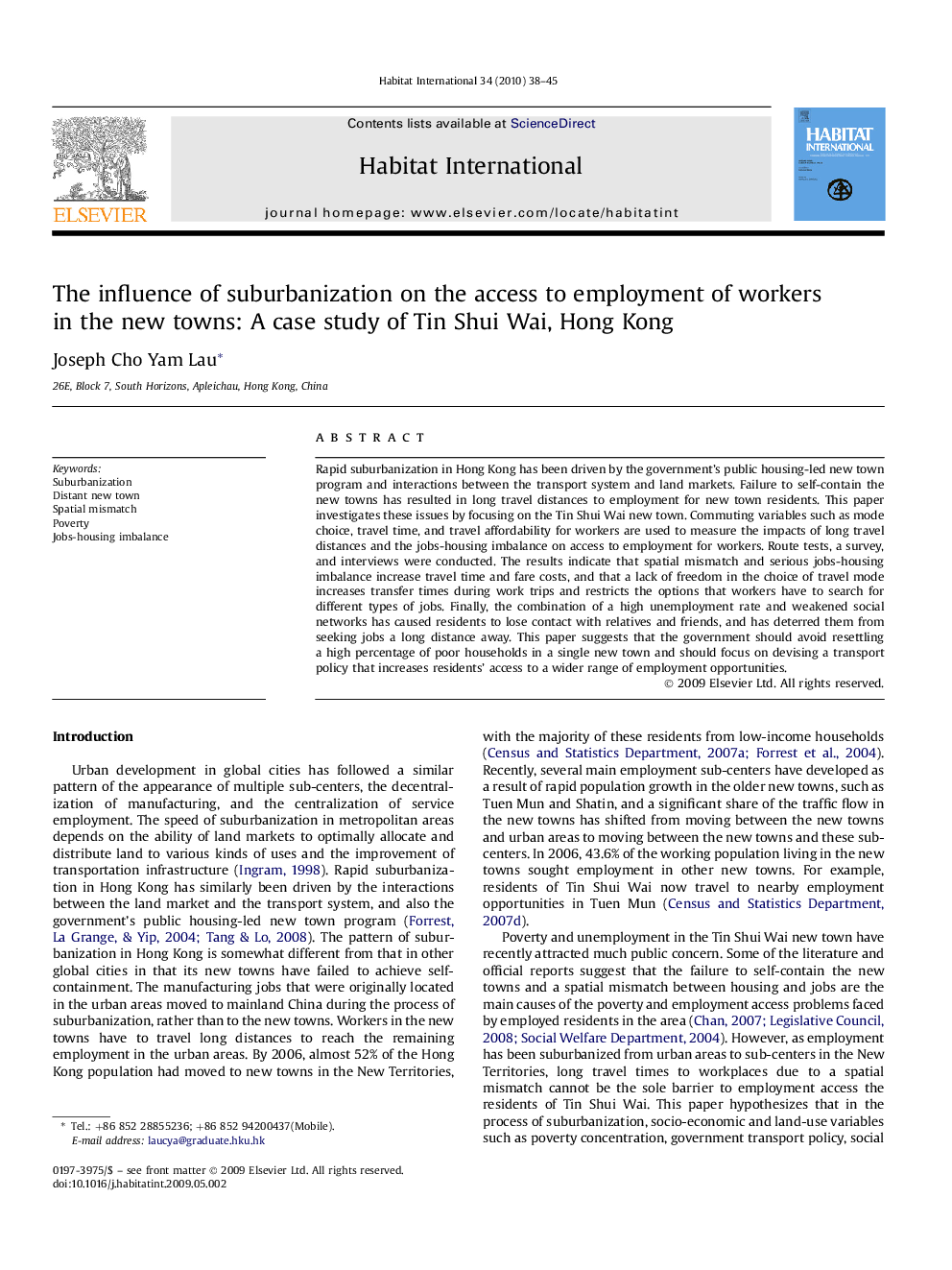| Article ID | Journal | Published Year | Pages | File Type |
|---|---|---|---|---|
| 1048330 | Habitat International | 2010 | 8 Pages |
Rapid suburbanization in Hong Kong has been driven by the government's public housing-led new town program and interactions between the transport system and land markets. Failure to self-contain the new towns has resulted in long travel distances to employment for new town residents. This paper investigates these issues by focusing on the Tin Shui Wai new town. Commuting variables such as mode choice, travel time, and travel affordability for workers are used to measure the impacts of long travel distances and the jobs-housing imbalance on access to employment for workers. Route tests, a survey, and interviews were conducted. The results indicate that spatial mismatch and serious jobs-housing imbalance increase travel time and fare costs, and that a lack of freedom in the choice of travel mode increases transfer times during work trips and restricts the options that workers have to search for different types of jobs. Finally, the combination of a high unemployment rate and weakened social networks has caused residents to lose contact with relatives and friends, and has deterred them from seeking jobs a long distance away. This paper suggests that the government should avoid resettling a high percentage of poor households in a single new town and should focus on devising a transport policy that increases residents' access to a wider range of employment opportunities.
